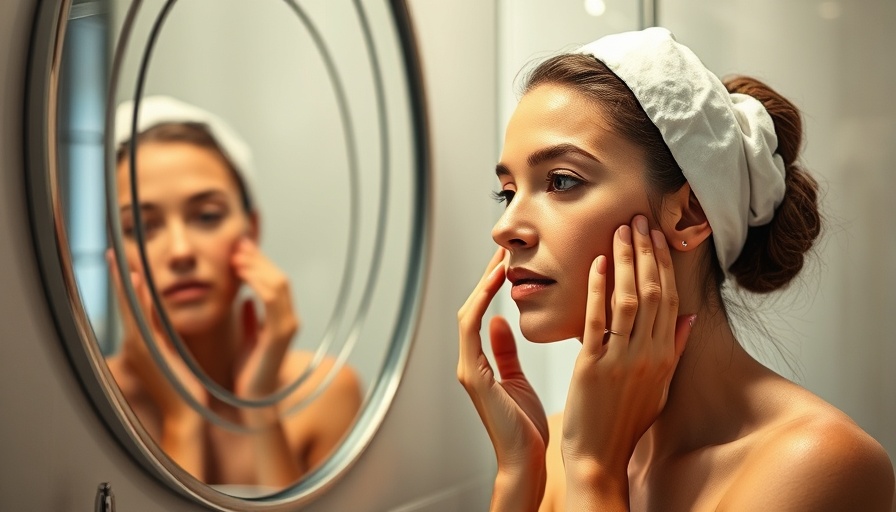
Why Stress Shows Up on Your Skin
We live in a fast-paced world where the demands of life can often take a toll on our health. One of the most visible signs of stress is found on our face. Have you ever looked in the mirror and noticed a dull complexion or dark circles under your eyes? You’re not alone. According to experts, a tired face can signal a variety of health issues, mostly linked to stress and lifestyle choices.
When we experience stress, our body produces cortisol, a hormone that can lead to various physical symptoms. Skin changes, such as puffiness and premature aging, can commonly occur. As Mila Davis, an aesthetician at Skin to Smile, explains, “A fatigued or tired-looking face can result from aging, poor skincare, or lifestyle factors.” In fact, many of us may notice the effects of fatigue not only in our energy levels but also in our skin’s vitality.
Identifying Signs of Fatigue
Recognizing when stress is affecting your appearance is the first step toward improving your overall skincare routine. Common indicators of a tired face include:
- Dull skin tone
- Puffy under the eyes
- Fine lines and creases
- Uneven skin texture
These physical manifestations can leave you feeling less than your best, which can lead to a cycle of stress and self-critique. Evaluating your lifestyle—ranging from sleep patterns to dietary choices—is crucial to understanding how these factors contribute to your skin’s health.
Strategies to Combat Stress-Related Skin Issues
Fortunately, there are many strategies to mitigate the effects of a tired face. A well-rounded combination of lifestyle changes and skincare products can reinvigorate your skin:
- Hydration: Staying hydrated is vital for skin health. Aim for adequate water intake daily. A simple water bottle can help remind you to drink more.
- Balanced Diet: Incorporate a diet rich in fruits, vegetables, and whole grains while avoiding excess processed foods.
- Sleep Hygiene: Prioritize a consistent sleeping schedule. Adequate, quality sleep is one of the most critical components for good skin health.
- Stress Management: Engage in relaxation techniques, like meditation or yoga, to manage stress.
The Importance of Skincare Ingredients
Along with lifestyle adjustments, your skincare routine is equally important. It's essential to opt for products that target tired skin. Look for ingredients that provide energy and hydration, such as:
- Caffeine: Great for reducing under-eye puffiness.
- Retinoids: Help improve fine lines and wrinkles.
- Hyaluronic Acid: Attracts moisture to the skin, ensuring deep hydration.
- Vitamin C: Brightens the skin and evens out the complexion.
- AHAs: Gently exfoliate the skin for a renewed glow.
Incorporating these elements can provide your skin with the energy boost it needs, helping you achieve that youthful and fresh appearance.
Future Insights: Nurturing Skin Health
Integrating these practices isn't merely about appearance; they are about nurturing your overall health. Future research suggests that understanding the mind-skin connection can lead to better outcomes in treating skin conditions related to stress. When you feel good mentally, it reflects on your skin, reinforcing the importance of a holistic approach to self-care.
Balancing lifestyle habits with effective skincare can elevate your well-being and confidence. It all starts with recognizing the symptoms and taking proactive steps towards revitalizing your skin.
Understanding how stress affects our skin can empower you to improve your daily habits. Remember, enhancing skin appearance can also boost self-esteem and promote a healthier lifestyle overall. So why not take a step back, assess your lifestyle, and choose to gift yourself the care your skin deserves?
 Add Row
Add Row  Add
Add 



 Add Row
Add Row  Add
Add 
Write A Comment